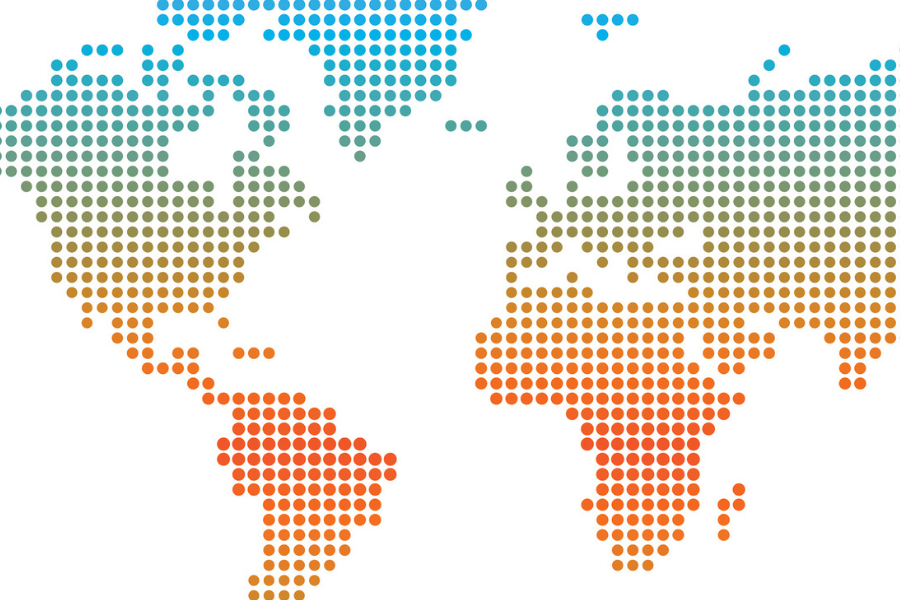
Minnesota Population Center (MPC) members Eric Shook and Steven Manson will be part of a new national initiative to enable geospatial data-driven scientific discovery to better understand the risks and impacts of climate change. Manson and Shook will work with collaborators and partner institutions from around the country with the newly created Institute for Geospatial Understanding through an Integrative Discovery Environment (I-GUIDE) at the University of Illinois Urbana-Champaign (U of I). The new institute will receive $15-million in funding over five years as part of the National Science Foundation (NSF)’s Harnessing the Data Revolution, which establishes five institutes across the United States to explore questions at the frontiers of science and engineering. The MPC will also collaborate with I-GUIDE through support staff and likely host a postdoctoral position associated with the project.
“The goal of I-GUIDE is to revolutionize theories, concepts, methods, and tools focused on data-intensive geospatial understanding for driving innovative cyberGIS and cyberinfrastructure capabilities to address the most pressing resilience and sustainability challenges of our world such as biodiversity, food security, and water security,” said Shaowen Wang, head of the Department of Geography and Geographic Information Science at U of I and founding director of the CyberGIS Center for Advanced Digital and Spatial Studies (CyberGIS Center), who will lead the institute.
I-GUIDE aims to drive transformative advances across many fields from computer, data, and information sciences to atmospheric sciences, ecology, economics, environmental science and engineering, human-environment and geographical sciences, hydrology and water sciences, industrial engineering, sociology, and statistics.
Shook and Manson are building on a strong foundation of work supported by the MPC and the Department of Geography, Environment, and Society in the College of Liberal Arts (CLA). Shook heads the CLA-funded Geocommons, which will host I-GUIDE collaborative research, and leads the NSF-funded project CyberTraining: Hour of Cyberinfrastructure: Developing Cyber Literacy for Geographic Information Science, which will support the larger multi-institutional project. I-GUIDE also draws on several MPC efforts, including the projects for which Manson is the principal investigator, the IPUMS National Historical Geographic Information System (NHGIS) and IPUMS International Historical Geographic Information System (IHGIS). NHGIS and IHGIS will develop data with I-GUIDE partners to address a range of human-environment challenges in the US and beyond.
The new institute will bring together about 40 researchers from University of Minnesota, U of I, Columbia University, Consortium of Universities for the Advancement of Hydrologic Science, Inc., Florida International University, Michigan State University, Open Geospatial Consortium, Purdue University, University Consortium for Geographic Information Science, University Corporation for Atmospheric Research, Utah State University, and a variety of other partners
I-GUIDE “creates a novel geospatial discovery environment for synthesizing data on geographically referenced social, economic, ecological, and environmental factors to better understand the risk and impacts of climate change and disasters,” the NSF reported, in a press release. Wang added, “I-GUIDE nurtures a diverse and inclusive geospatial discovery community across many disciplines by bridging disciplinary digital data divides with broader impacts amplified through a well-trained and diverse workforce and proactive engagement of minority and underrepresented groups.“
In all, NSF is investing $75 million to establish five new Harnessing the Data Revolution Institutes as part of its “Big Ideas” initiative.
“NSF’s Big Ideas are a set of 10 bold, long-term research and process ideas that identify areas for future investment at the frontiers of science and engineering and represent unique opportunities to position our Nation at the cutting edge of global science and engineering by bringing together diverse disciplinary perspectives to support convergent research,” said Manish Parashar, office director for the Office of Advanced Cyberinfrastructure at NSF.